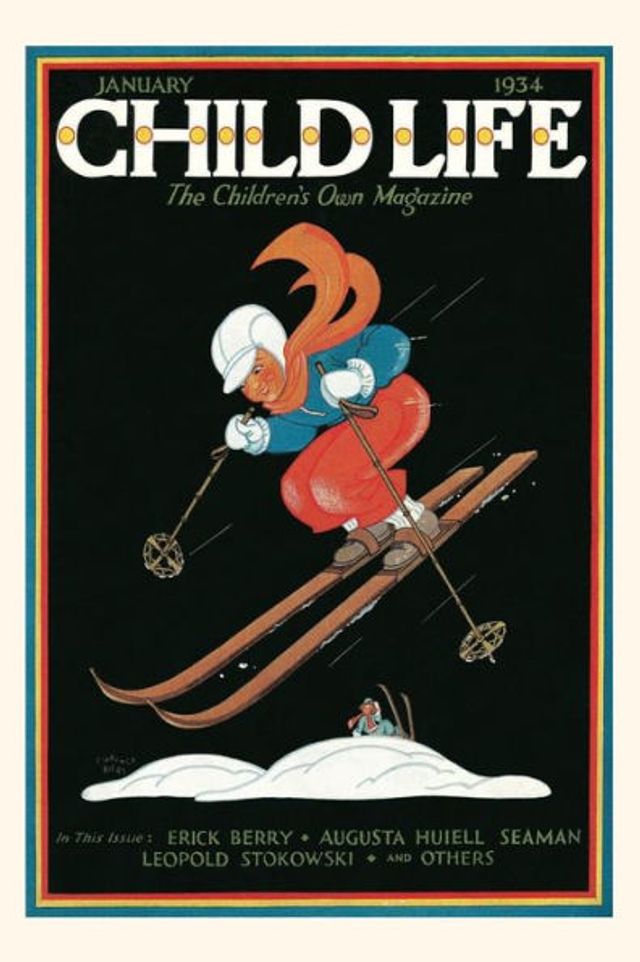Home
Study of Child Life
Barnes and Noble
Study of Child Life
Current price: $15.99


Barnes and Noble
Study of Child Life
Current price: $15.99
Size: OS
Loading Inventory...
*Product information may vary - to confirm product availability, pricing, shipping and return information please contact Barnes and Noble
"In beginning this subject of the "Study of Child Life" there may be lurking doubts in your mind as to whether any reliable rules can really be laid down. They seem to arise mostly from the perception of the great difference between children. What will do for one child will not do for another. Some children are easily persuaded and gentle, others willful, still others sullen unresponsive. How, then, is it possible that a system of education and training can be devised suitable for their various dispositions?
We must remember that children are much more alike than they are different. One may have blue eyes, another gray, another black, but they all have two. We are, therefore, in a position to make rules for creatures having two eyes and these rules apply to eyes of all colors. Children may be nervous, sanguine, bilious, or plethoric, but they all have the same kind of internal organs end the same general rules of health apply to them all.
In this series of lessons I have endeavored to set forth principles briefly and to confirm them by instances within the experience of every observer of childhood. The rules given are such as are held at present by the best educators to be based upon sound philosophy, not at variance with the slight array or scientific facts at our command. Perhaps you yourself may be able to add to the number of reliable facts intelligently reported that must be collected before much greater scientific advance is possible.
There is, to be sure, an art of application of these rules both in matters of health of body and of health of mind and this art must be worked out by each mother for each individual child.
We all recognize that it is a long endeavor before we can apply to our own lives such principles of conduct as we heartily acknowledge to be right. Why, then, expect to be able to apply principles instantly and unerringly to a little child? If a rule fails when you attempt to apply it, before questioning the principle, may it not be well to question your own tact and skill?
So far as I can advise with you in special instances of difficulty, I shall be very glad to do so; not that I shall always know what to do myself, but that we can get a little more light upon the problems by conferring together. I know well how difficult a matter this of child training is, for every day, in the management of my own family of children, I find each philosophy, science and art as I can command very much put to the test." The Author
We must remember that children are much more alike than they are different. One may have blue eyes, another gray, another black, but they all have two. We are, therefore, in a position to make rules for creatures having two eyes and these rules apply to eyes of all colors. Children may be nervous, sanguine, bilious, or plethoric, but they all have the same kind of internal organs end the same general rules of health apply to them all.
In this series of lessons I have endeavored to set forth principles briefly and to confirm them by instances within the experience of every observer of childhood. The rules given are such as are held at present by the best educators to be based upon sound philosophy, not at variance with the slight array or scientific facts at our command. Perhaps you yourself may be able to add to the number of reliable facts intelligently reported that must be collected before much greater scientific advance is possible.
There is, to be sure, an art of application of these rules both in matters of health of body and of health of mind and this art must be worked out by each mother for each individual child.
We all recognize that it is a long endeavor before we can apply to our own lives such principles of conduct as we heartily acknowledge to be right. Why, then, expect to be able to apply principles instantly and unerringly to a little child? If a rule fails when you attempt to apply it, before questioning the principle, may it not be well to question your own tact and skill?
So far as I can advise with you in special instances of difficulty, I shall be very glad to do so; not that I shall always know what to do myself, but that we can get a little more light upon the problems by conferring together. I know well how difficult a matter this of child training is, for every day, in the management of my own family of children, I find each philosophy, science and art as I can command very much put to the test." The Author


















